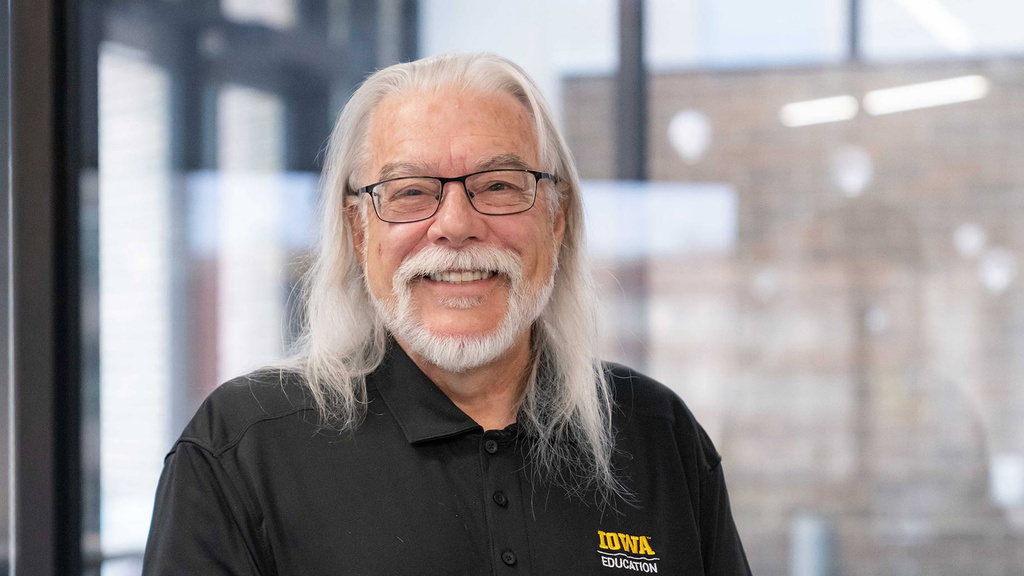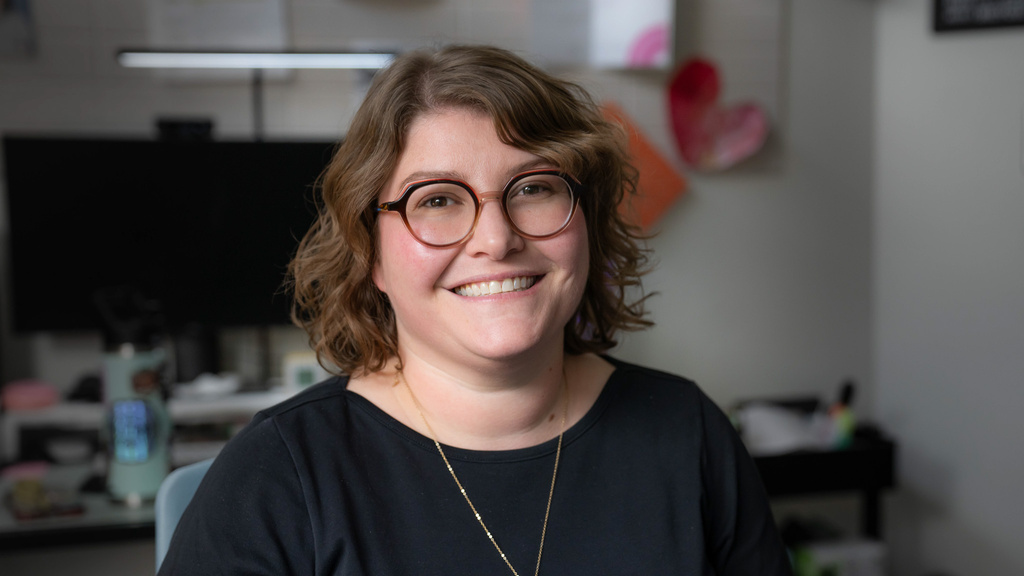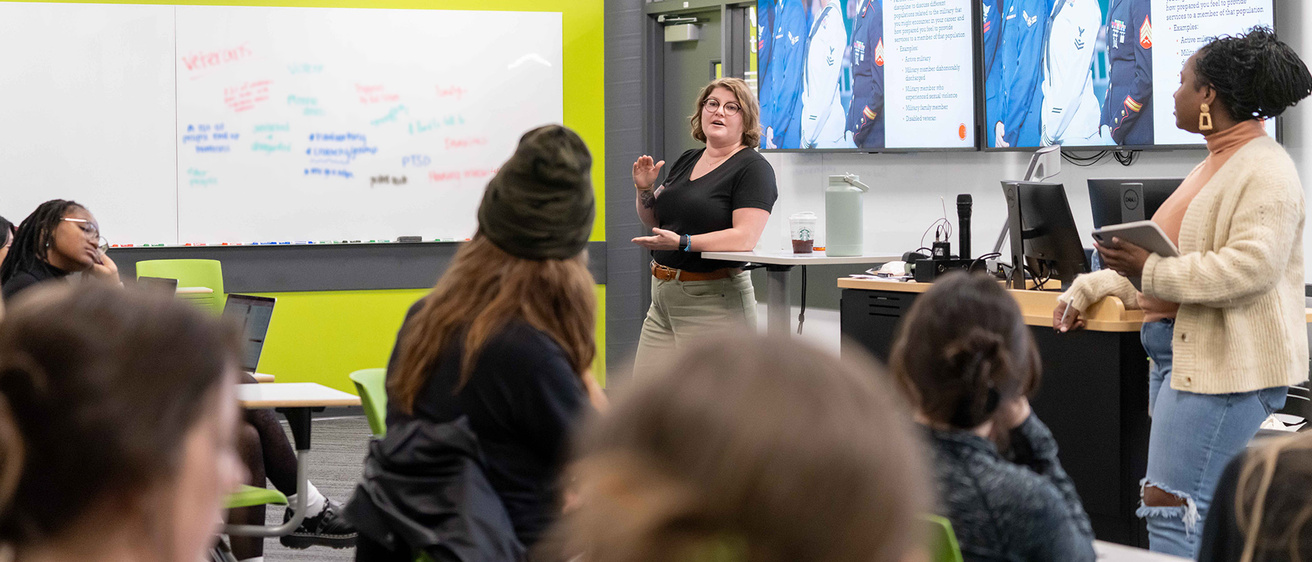Our Rehabilitation Counseling program prepares graduates to meet and support the psychological, social, emotional, career, and independent living goals of people with disabilities through the counseling process.
# 4
No. 4 ranked Rehabilitation Counseling program in U.S.
Program Overview
The Rehabilitation Counseling curriculum is structured to foster the development of advanced clinical competencies and in-depth expertise in disability-related issues, equipping graduates to engage in evidence-based practice, effective advocacy, and leadership in rehabilitation counseling agencies. Accredited by CACREP, the program offers clear pathways to national certification as a Certified Rehabilitation Counselors as well as state-level counseling licensure
Program Requirements
Field Experience
We are committed to providing training experiences that not only meet the needs and interests of our students, but also to ensure our graduates are the highest qualified applicants in the labor market. Students are placed for practicum and internship experiences in relevant, competitive settings including state agencies (e.g., vocational rehabilitation, veterans' administration, and corrections), community mental health practices, Student Disability Services at Iowa and more.
Employment Opportunities
Our MA in Rehabilitation Counseling has a 100% employment rate among our graduates. Recent graduates have careers in a wide range of industries, including but not limited to:
- State vocational rehabilitation agencies
- Veterans Administration
- Private rehabilitation agencies
- Community mental health agencies
- Insurance companies
- K-12 schools with transition programs
Financial Support
Interdisciplinary Training in Rehabilitation Counseling and Special Education (I-CREST)
Project I-CREST is a federally funded project that provides tuition support and stipends for scholars who are interested in working with students with disabilities during the critical time in which they are looking for postsecondary opportunities in work and education.
Rehabilitation Service Administration Scholars Program (RSA)
The RSA Training Grants provide students with tuition waivers and stipends in order to support their training in graduate rehabilitation counseling programs.
Assistantships
Graduate Assistantships at the University of Iowa are designed to provide students with work experience and a means to finance their education while providing the University with the benefit of an innovative work force. Some assistantships are closely related to specific departments or fields, and all require specific skills or aptitudes. An assistantship in any office on campus could provide valuable experience, open new career paths, and help finance your graduate education. In addition to a monthly salary, assistantships frequently provide a tuition scholarship. Positions vary from quarter-time (10 hours per week) to half-time (20 hours per week).
The majority of graduate assistantships at the University of Iowa are in the bargaining unit of the graduate student union. Offices that have recently employed students include (but are not limited to): Belin-Blank Center for Gifted Education, Orientation Services, Division of Student Life, Pomerantz Career Center, Admissions, Student Health, Honors Program, Student Disabilities Services. You may also check the Handshake website for student employment at the University of Iowa (search term = graduate).
Iowa Testing Program Fellowships
Each year, the Iowa Testing Programs award a limited number of fellowships to students with outstanding academic credentials in the College of Education. Students of color with strong credentials may be eligible for Graduate College Graduate Opportunity Fellowships.
Faculty and Research
To see associated faculty, please: Visit Faculty Listing
Admissions and Application
Priority will be given to students who apply by March 15, with applications being reviewed as they are received until the cohort is filled.
Admission Requirements
- A bachelor’s degree from a Regionally Accredited American College or University, or an equivalent degree from another country as determined by the Office of Admissions
- Undergraduate grade-point average (GPA) of 3.00 or better on a four-point scale
- English Proficiency Requirements (international applicants)
- A personal interview (in person or by telephone) with the faculty
Required Supplemental Material
- Official transcripts from all post-secondary institutions
- Official TOEFL scores may be required for some non-native speakers of English
- Current Resume
- A statement of purpose, including a statement of your personal career objectives.
- Three letters of recommendation. You will be asked to give the contact information of your recommenders, including their email, on your Admissions Profile. The recommender will then get an email with instructions on how to upload the recommendation letter and/or form.
Apply Now
Please review the required supplemental documents above before starting the general graduate application.
Request More Information
News

COE alumnus and longtime faculty member Wadsworth set to retire

Levine awarded $2.1M grant to advance STEM access through virtual simulation and AI
Faculty, Staff, and Student Awards, 2024-25
Program Resources
Professional Organizations related to Rehabilitation Counseling
As professional counselors with specialization in rehabilitation counseling, the following professional organizations are available:
- American Rehabilitation Counseling Association (ARCA)
- American Counseling Association (ACA)
- International Association of Rehabilitation Professionals (IARP)
- Counselors for Social Justice (CSJ)
Rehabilitation Counselors are nationally certified by the Commission on Rehabilitation Counseling Certification.
Rehabilitation Counseling: Scope of Practice
Rehabilitation counseling is a systematic process that assists persons with physical, mental, developmental, cognitive, and emotional disabilities to achieve their personal, career, and independent living goals in the most integrated setting possible through the application of the counseling process. The counseling process involves communication, goal setting, and beneficial growth or change through self-advocacy, psychological, vocational, social, and behavioral interventions. The specific techniques and modalities utilized within this rehabilitation counseling process may include, but are not limited to:
- Assessment and appraisal.
- Diagnosis and treatment planning.
- Career (vocational) counseling.
- Individual and group counseling treatment interventions focused on facilitating adjustment to the medical and psychosocial impact of disability.
- Case management, referral, and service coordination.
- Program evaluation and research.
- Interventions to remove environmental, employment, and attitudinal barriers.
- Consultation services among multiple parties and regulatory systems.
- Job analysis, job development, and placement services, including assistance with employment and job accommodations.
- The provision of consultation about, and access to, rehabilitation technology.
Contact Us
Allison Levine, Program Coordinator
Assistant Professor
N370 Lindquist Center
319-467-4355
allison-levine@uiowa.edu
Application questions can be directed to:
Joshua Lobb, Constituent Relations Coordinator
319-384-0671
joshua-lobb@uiowa.edu
We look forward to receiving your application!
